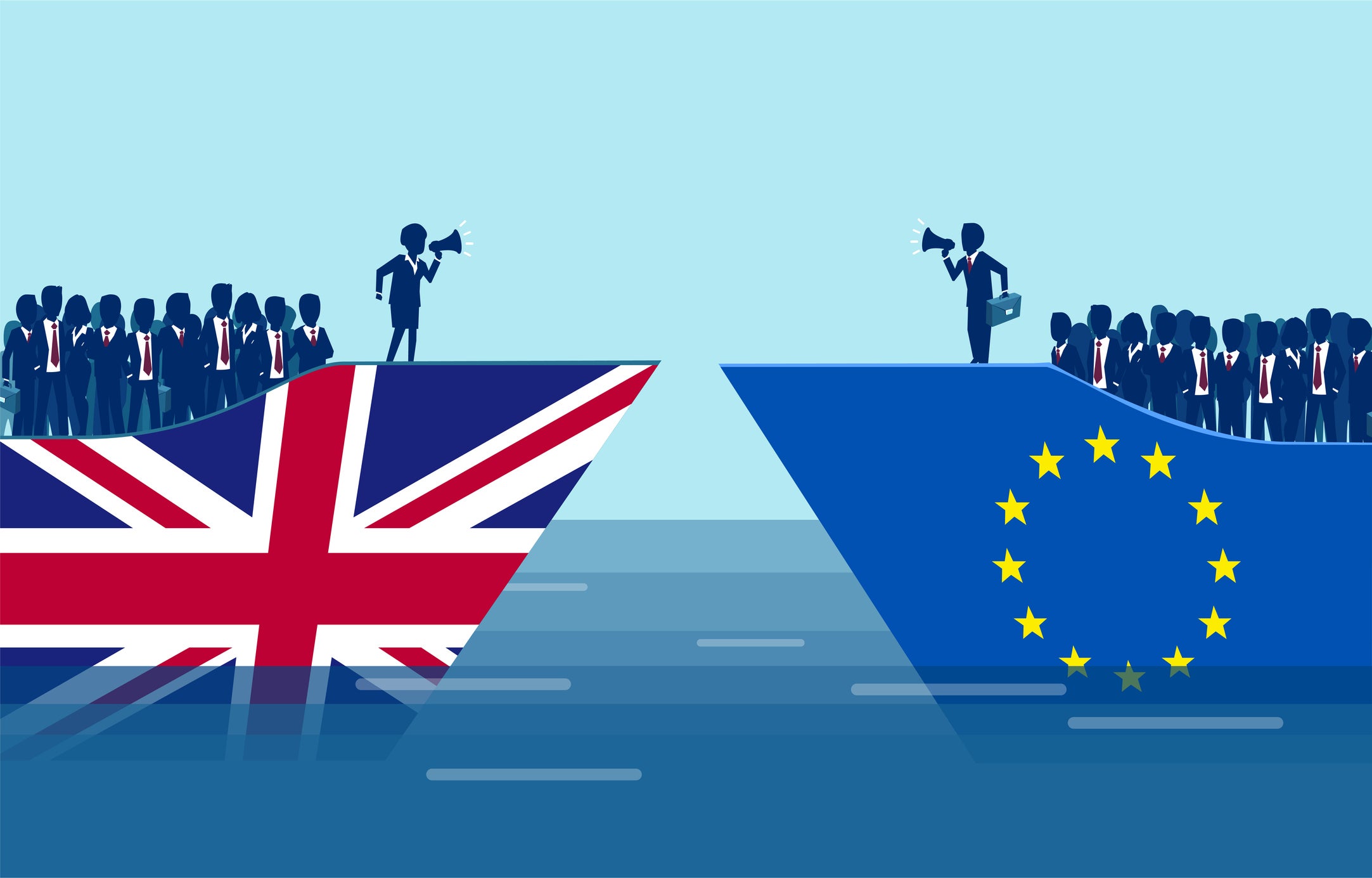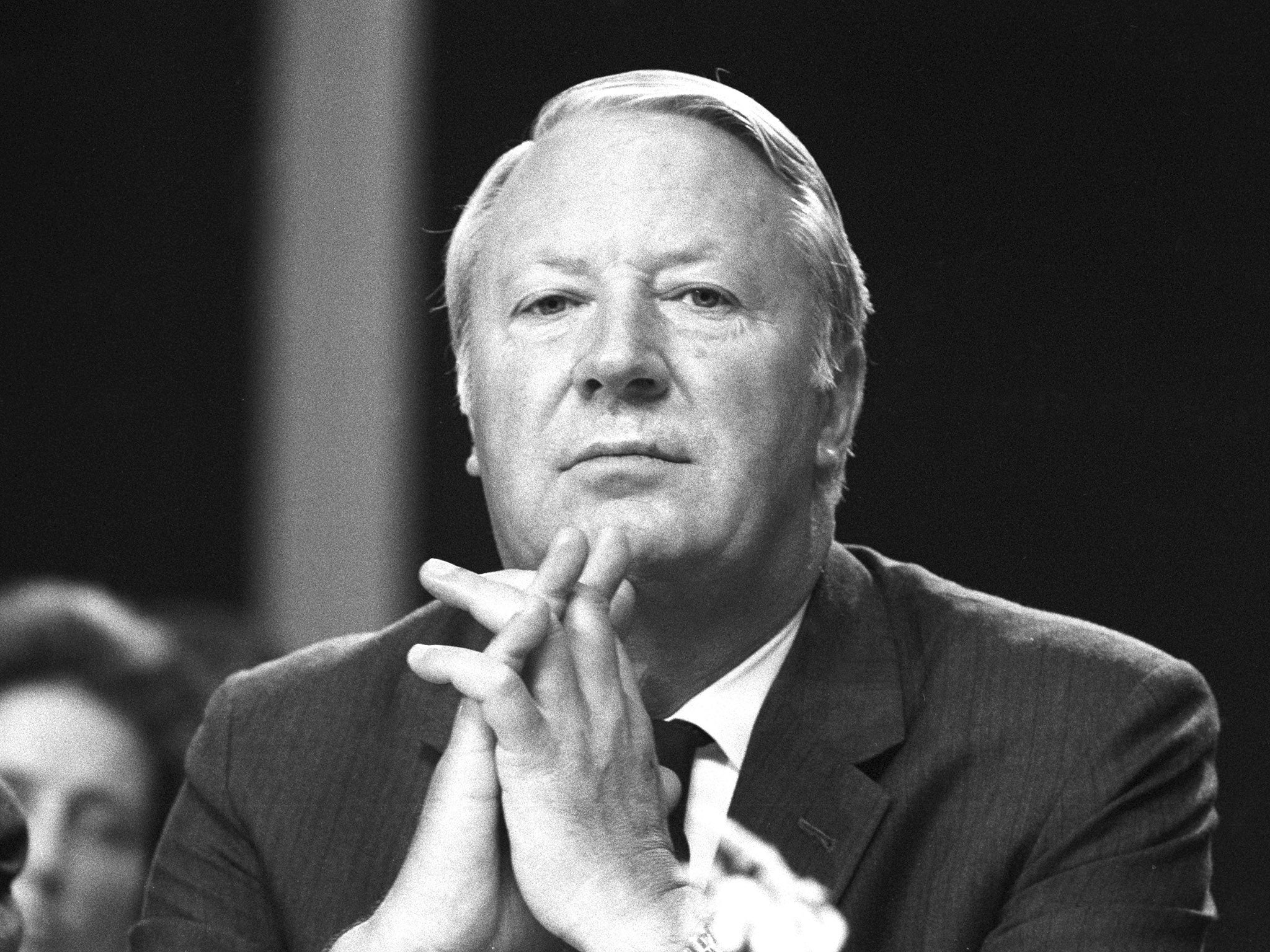The next generation will reject Brexit and the way it diminished our country – Europe will welcome us back
Across the world, there is incomprehension at what we have done to ourselves, writes Michael Heseltine


Ted Heath’s legacy, self-evidently, is centered around our European relationship, and it is not fanciful to suggest that his legacy has been shattered beyond recognition.
We have had “control” now for two years but, more significantly, five and a half years have passed since the EU referendum – more than enough time to plan that bonfire of controls that were said to be so damaging to our economy.
A central promise of Boris Johnson’s 2019 election campaign was that electing him would enable the government to “get Brexit done”. One can be forgiven now for wondering if Johnson had any idea what lay in store, as we remember the queues for petrol, are warned to buy early for Christmas, view the gaps in the supermarket shelves, wait in queues in doctors’ surgeries, beg builders to spare someone to fix a leaking tap or broken window, read that well over a million European workers have gone home, and see the containers stacked up at Felixstowe.
Covid would have stretched the capabilities of any government to the extreme, but nothing reveals the nature of the relative impacts on our economy more than the assessment last week by the Office for Budget Responsibility that the long-term effects of Brexit were twice as damaging as those of Covid.
The attempt by George Eustice, secretary of state for the environment, food and rural affairs, to dismiss these findings as “old hat” fell rather flat when Nick Robinson on the Today programme pointed out that they had only been published the day before. It is important to remember that Brexit was conceived, designed and secured before the word Covid ever entered our vocabulary.
The campaign to leave the European Union was deeply divisive. It played on people’s anxieties, fanned their resentments, conjured up memories of an imperial independence long since past. Specifically, it focused on several long-standing grievances. Sweeping aside the fact that many British fishermen had sold the quotas allocated to them in 1973 to European fleets, the idea of taking back control of our seas was targeted at our fishing industry. I quote the verdict of the National Federation of Fisherman’s Organisations: “The flags flying over our vessels had a slogan, ‘Fishing, No Sell Out’. Those flags now seem prescient because that’s what happened.”

The common agricultural policy has been a long-standing target for the Eurosceptics. I must declare an interest here. My company has extensive agricultural and horticultural interests. Liz Truss has negotiated deals with Australia and New Zealand that, unlike virtually every other trade deal negotiated as a consequence of Brexit, are new as opposed to simply rollovers. They have a common factor: they are being phased in over a significant period of time. I have been in politics a long time; I know what that means. Someone is going to get hurt. Kick the hurt down the road, and hope it will be lost to sight in the details of an agricultural horizon still shrouded in uncertainty.
To keep up to speed with all the latest opinions and comment sign up to our free weekly Voices newsletter by clicking here
I turn now to the effect of Brexit on the United Kingdom. We are greater together than ever we could be apart. I come from South Wales. It will always be my home. My eyes fill as the choirs sing. It never occurred to me that Wales should split from the United Kingdom. It is one of the most perverse aspects of Brexit that the very arguments its advocates used to separate from Europe are those the nationalists use to divide the United Kingdom. Brexit fuels separatism. Can anyone today claim that the United Kingdom, its monarchy and its constitution are more secure now that we have got back control?
I deplore the prospect of an independent Scotland. Its people have made such a significant contribution to what we are. The human giants in academia, engineering and culture are part of British culture. As a young schoolboy I made models of the tanks of the Black Watch fighting in the deserts of north Africa. Our defence is their defence. Brexit has handed Nicola Sturgeon one more potent weapon.
The Northern Irish situation is fragile. Debate rages about the creation and implementation of a border within the United Kingdom that we were told no prime minister could contemplate. What the government signed and what its ministers said are incompatible. There is one uncomfortable explanation: Brexit was more important than the truth. Britain’s word matters, and is a key to our reputation across the world. People must believe that what we sign, we will deliver.
Huge numbers of Europeans have chosen to return to their over-regulated, too-centralised, Brussels-dominated, sclerotic economies, leaving us with glaring holes in both our public services and the private sector. The prime minister advocates a high-wage, high-productivity economy – without explaining that the high productivity has to precede the high wages. This failure has made him the shop steward for every inflationary wage claim that will, over the coming months, lead to growing inflation, rising interest rates and falling living standards. Not quite the dividend Brexit promised.
The City of London had established itself as the pre-eminent European financial centre before Brexit was a serious feature on the political agenda. Under the terms of the single market, its position was unassailable. The Brexit negotiations did not cover these crucial service industries, and companies are now forced to anticipate what discriminatory measures Europeans will adopt to shift part of this lucrative business to the continent.

In an article in the Insurance Journal it is claimed that 440 relocations have been decided, with 135 destined for Dublin, followed by Paris with 102. The prizes are obvious and we should expect to see persistent attempts to undermine our market leadership. There will be those who accuse our former partners of being cheats and worse, ignoring all the while that our talk of creating a “Singapore on Thames”, slashing taxes and tearing up regulations, was designed to achieve precisely that outcome at their expense.
This brings me to another of the easy targets of the Brexiteers: regulations, coupled with images of anonymous officials in Brussels. The market knows no morality. Left to its own devices it is a jungle. Everyone for themselves. Civilisation depends on the constraints imposed by politicians to protect the weak, impose standards, and frustrate criminals.
Regulations are often intrusive and detailed, but that is because long experience has taught the officials who design them that there is a small percentage of the population with clever lawyers looking for loopholes they can exploit.
Last week it was revealed that we have the dirtiest beaches in Europe because we allow the discharge of raw sewage onto them. A group of Conservative MPs forced the government’s hand. Regulations will follow. If all those facile claims for deregulation had had any validity, the chimneys of Whitehall should today be belching white smoke. At least our environment benefits from its absence.
Too much of the Remain campaign made the mistake of concentrating on detailed threats that were then all lumped together under “Project Fear” by its opponents. The argument that attracted too little attention was that which concerned the extraordinary achievements of the European Community in changing the course of the continent’s history. Debate, negotiation and compromise became the essence of political behaviour. Three wars in 75 years gave birth to the founding vision that it must never happen again, and led to three-quarters of a century of peace. Twenty-seven nations sharing sovereignty, each with their own liberal democratic accountability as a condition of community membership, have turned their backs on centuries of bloodshed. Their shared political endeavour has levelled up the condition of their people and preserved the countryside.
A political entity with the resources to compete with the superpowers of the United States, China, and, shortly, India, opens horizons that would be denied to those of us dependent on national resources alone. A British voice at its heart, speaking for generations of young people about the social, commercial, cultural and environmental world of tomorrow. That was Ted’s legacy.
For what purpose did we throw it all away? Does Britain stand taller in the world today? Should we not have listened to President Obama when he warned that in seeking a trade deal we would be at the back of the queue? Our relations with China are clouded by understandable disagreements. European politicians are at the wrong end of name-calling in a war of words that anyone who deals in business knows has to be overcome in order to clinch a deal. Across the world there is incomprehension at what we have done. At home there is a growing understanding that we were deceived.
I have not mentioned Nigel Farage, but I want to allow him the last quotation. “In a 52-48 referendum, this would be unfinished business by a long way.” Thinking he was about to lose, he was preparing for the fight ahead. The last opinion poll I saw showed that this narrow Brexit vote has been replaced by a 10-point lead for those who took the opposite view. I agree, therefore, that it is unfinished business. It will take time. It will require energy and leadership.

There is a lesson to be learnt from the Brexiteers: they never gave up. Our purpose is clear. We must restore Britain’s position in the corridors of European power. That is our natural home, and where our history lies. Any vision of our future must be built around the realities of world power. We have so much to contribute: our tolerance and fair-mindedness; a political sophistication that has converted colonies into the Commonwealth; a reputation of trust, as reliable friends. We will play our part more effectively by sharing the power and sovereignty of modern Europe.
Every Conservative prime minister for whom I have worked, since Winston Churchill himself, has understood this. Ted Heath gave substance to the words. It is sad beyond measure that this government, by contrast, will bequeath to our younger generation an empty chair, voiceless, devoid of influence over European affairs. They will come to reject such a diminished role for our country. Europe will welcome them back.
This is an edited version of Michael Heseltine’s Edward Heath Lecture at the University of Nottingham
Michael Heseltine is president of the European Movement and a former defence secretary
Join our commenting forum
Join thought-provoking conversations, follow other Independent readers and see their replies
Comments
Bookmark popover
Removed from bookmarks